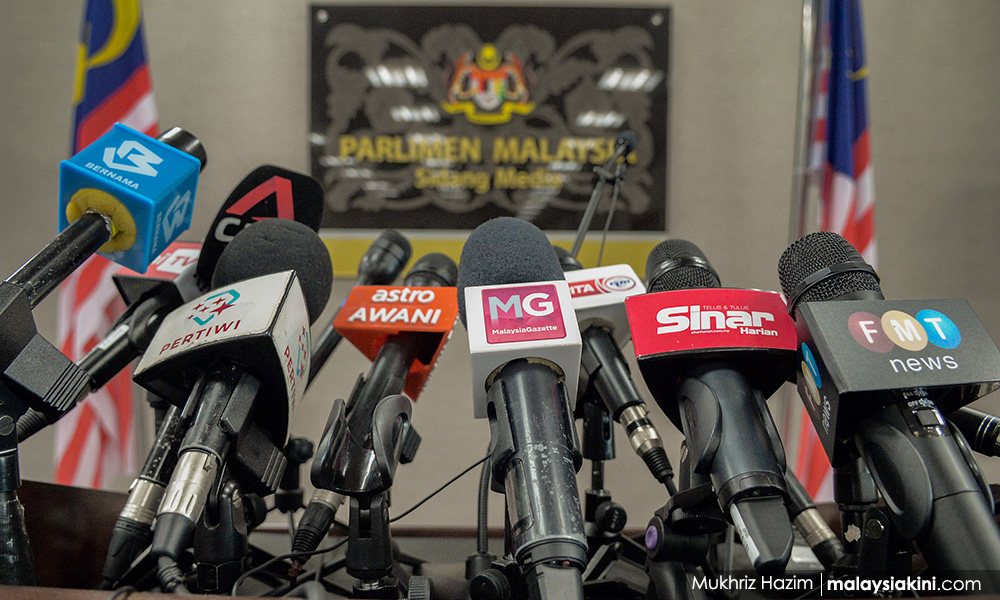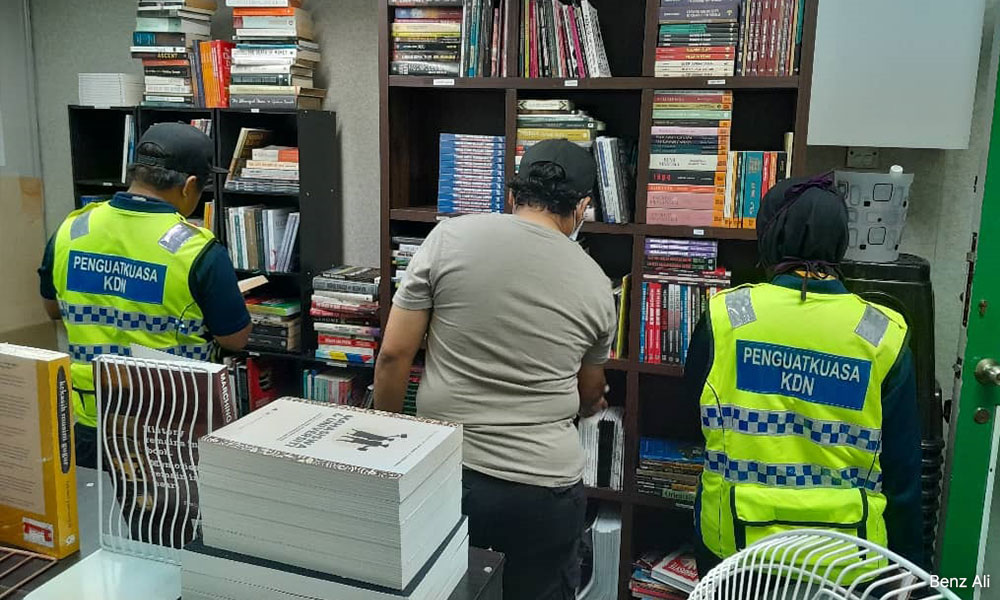It is now one year since Anwar Ibrahim was sworn in as the tenth prime minister. Since then, Pakatan Harapan and BN joined hands to form the Madani unity government, cementing a change in our political landscape after a tumultuous period filled with controversy.
Although the change signalled reform in the nation in terms of actualising a multiparty democracy, we do not see this as the end of the line in achieving a truly democratic nation.
The Centre for Independent Journalism (CIJ) continues to scrutinise the government so that it upholds a key aspect of any thriving democracy, the freedom of expression.
To consistently hold the government accountable, CIJ sees fit to commemorate the one-year anniversary by providing a review of the government’s performance in regard to freedom of expression.
The promises and our evaluation at a glance
Harapan showed great promise in their ‘Kita Boleh’ manifesto, making pledges on establishing a Media Council; repealing draconian acts that suppress freedom of expression; enacting a Right to Information Act; and protecting whistleblowers.
However, the Madani framework released after the formation of the government put far less attention on the promises made in the Harapan manifesto.

Albeit, it still placed focus on a multitude of important principles for the government including, abolishing draconian laws especially archaic and inhumane ones; allowing for a free and open media; and forming a parliamentary team to ensure media freedom and freedom of speech.
Considering all these promises, the lack of or slow progress made on these promises has not been lost on CIJ. Although we realise change does not happen in a day, CIJ notes that reform must form a cornerstone of this government.
Backtracked promises
One crucial promise that has been entirely backtracked on is the Sedition Act 1948. In 2023 alone, according to CIJ media monitoring efforts up to Nov 21, there have been a total of 184 investigations that utilised draconian provisions to suppress freedom of expression; of these, 29 of them have been under the Sedition Act.
This is in comparison to 15 investigations under the Sedition Act in 2022. Despite making the promise that usage of the Sedition Act would be limited to issues on royalty, it has been used for a variety of issues in an arbitrary fashion.
Promises in progress
CIJ recognises the developments being made to fulfil certain promises. To note is the significant and commendable progress in the drafting of new legislation on the right to information (RTI)/freedom of information (FOI).
We further recognise that efforts are being undertaken to establish a Malaysian Media Council through sustained engagement with the Protem Committee tasked to draft the bill in 2020.
We also note that the Communications and Multimedia Act (CMA) 1998 is being reviewed and there has been some engagement with relevant stakeholders. The concern remains that its use continues unabetted and is often used to censor speech and expression disproportionately.

Our media monitoring records have shown that out of those 184 investigations, 98 of them have been carried out under Section 233 of the CMA. This sets a precedent for the reluctance of the government to make meaningful changes in these amendments so that this law is not arbitrarily used and abused as it suits the government’s values and agenda.
We urge that this progress continues undeterred and not be marred by different political expediency and to be fully centred on international human rights standards.
No progress
Reviewing and repealing the Printing Presses and Publications Act (PPPA) 1984 is a promise that seems to have been long forgotten with multiple raids still being carried out to suppress authors, publishers and even bookstore owners.
It continues to be weaponised by the current government and used to justify the raid of 11 Swatch outlets and seizure of its pride-themed items in May 2023, and subsequently the raid on Toko Buku Rakyat where two books were seized in August 2023.

The prevalence of archaic values in the institutions that govern Malaysia is also apparent in these cases as the government prioritizes these values over the basic human right to express oneself.
We also note that Harapan backtracked on its 2018 promise to repeal the Official Secrets Act (OSA) 1972 as it moved towards the enactment of an RTI law. The current government had, however, stated that they would amend the OSA as it co-exists with the proposed RTI law.
Nonetheless, while we see significant progress on the RTI law, no progress is evident when it comes to the amendments to the OSA. The lack of progress in this regard is likely to hamper the development of RTI, as an open and transparent information ecosystem cannot co-exist within a culture of secrecy unless significant amendments are made to the OSA to ensure effective alignment with the RTI law.
Another promise that the government has really placed on the backburner is amending the Whistleblower Protection Act to allow whistleblowers to directly expose misappropriations and wrongdoings to the media.
While discussions amongst government agencies are ongoing, there has not been much progress, especially in relation to specific mechanisms that need to be put in place for its effective implementation. It is salient that the importance of protecting whistleblowers is downplayed despite the multiple calls to do so.
Recommendations
Considering this performance from the government over the past year, the following is a set of recommendations that CIJ urges the government to follow, with no further delays:
1. Expedite the establishment of the Malaysian Media Council, as a self-regulatory body, ensuring that it is transparent and independent. There should be no government representatives sitting in the decision-making body of the Media Council to prevent any perception of government interference.
2. Expedite the amendments to the Official Secrets Act 1927.
3. Review and repeal draconian acts that can be abused to suppress freedom of expression such as the Sedition Act, the Printing Presses and Publications Act and the Communication and Multimedia Act. In the process of doing this, to place an immediate moratorium on the usage of these legal provisions.
4. Amend the Whistleblowers Act 2010.
5. Enable a conducive environment for media and human rights defenders.
CIJ opines that the government under the leadership of Anwar has a long way to go in keeping its promises and maintaining its reform platform. It is time to demonstrate the commitment to the people in Malaysia and not let political expediency mar its track record.
We can still realise a free, fair and equal democracy where everyone’s voice may be heard. - MMKtT.
The views expressed here are those of the author/contributor, The Centre for Independent Journalism (CIJ) and do not necessarily represent the views of MMKtT.




No comments:
Post a Comment
Note: Only a member of this blog may post a comment.